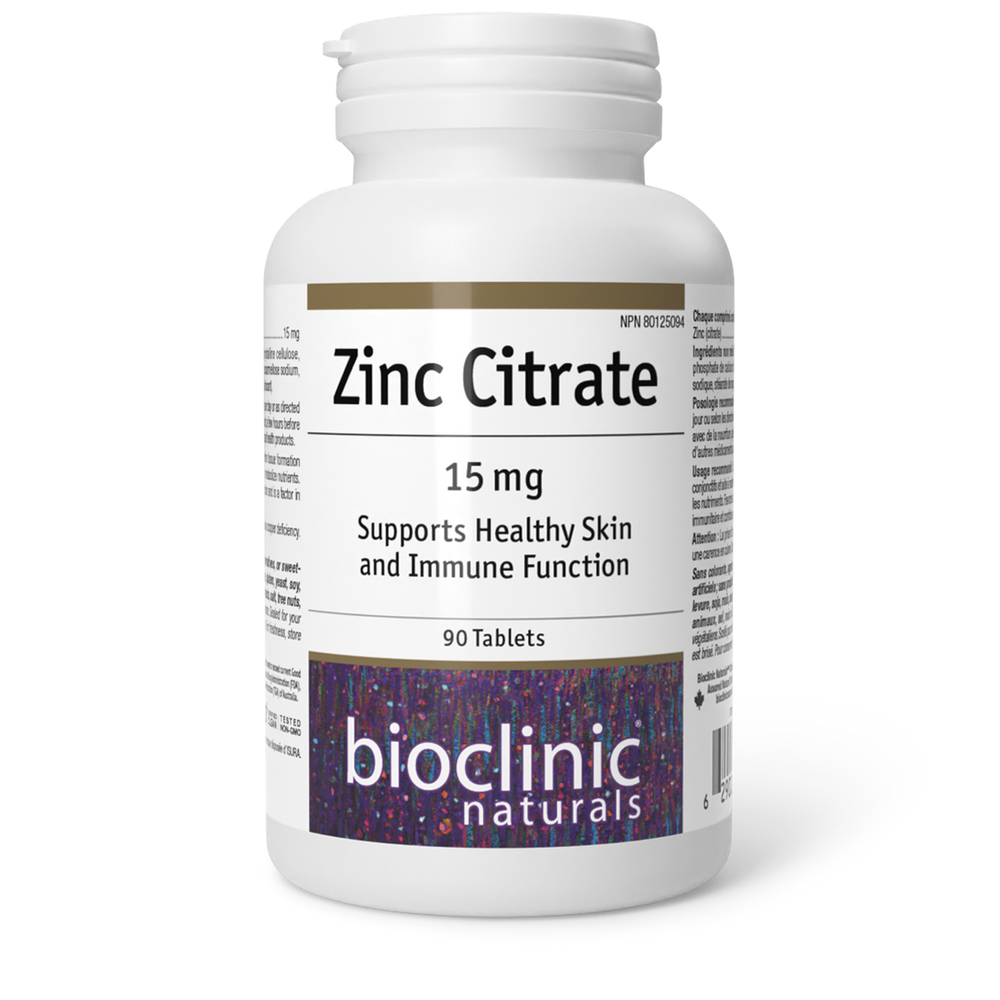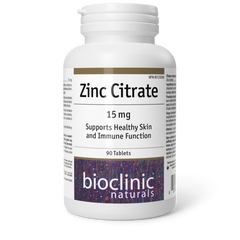

Zinc Citrate
- 8.99$
0.00$- 8.99$
- Unit price
- per
Description
x- Immune support
- Provides 15 mg of elemental zinc per tablet
- Zinc is needed by hundreds of enzymes
- Contributes to immune, reproductive, metabolic and musculoskeletal health.
- Zinc citrate is a highly bioavailable form of zinc.
- Provides a daily maintenance dose of 15 mg per serving
Zinc citrate is a highly bioavailable form of this essential mineral, the second most abundant micronutrient in the body. It is required by at least 200 enzymes and bound to nearly 3,000 proteins. Zinc is required for a wide range of physiological functions, including those related to immune, neurological, and metabolic functions, reproductive health, wound healing, and musculoskeletal growth and development.
Zinc deficiency, estimated to be one of the most prevalent deficiencies worldwide, has been linked to increased oxidative stress, infertility, impaired immune function, increased insulin resistance, inflammation, and altered lipid metabolism. Zinc deficiency has also been linked to reduced testosterone levels and male infertility, while clinical trials have shown that zinc supplementation helps restore testosterone levels and improve sperm volume and quality. Zinc supplementation has also been shown to reduce the duration and symptoms associated with upper respiratory tract infections and improve several biomarkers of cardiovascular risk and oxidative stress.
The risk of zinc deficiency is higher in children and the elderly, pregnant women, people with low dietary intake, including vegetarians/vegans and those on low-calorie diets, and people with absorption disorders, such as those with celiac disease or inflammatory bowel disease.
Produits recommandés
Produits récemment consultés
- Choosing a selection results in a full page refresh.


